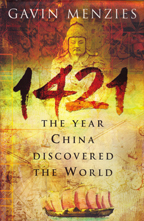Crete was no ordinary island. Myth already had it that the king of the gods came from Crete: the poet Homer even calls King Minos the ‘companion of mighty Zeus.’
Further investigation reveals the existence of a powerful island empire, long since lost to human memory. We learn that a number of academics were absolutely convinced that the Minoans ran a series of colonies and that their domination of the seas had led to a ‘Pax Minoica’, or ‘Minoan Peace’. Evidence of the spread of their empire can be seen in the British Museum, where they hold collections of Minoan pottery, jewellery and seals found in tombs and ruins spread all over the Mediterranean. We also learn that Minos was the first person to organise a navy, controlling the greater part of what is now called the Hellenic Sea.
The Cretans possessed levels of technology we can hardly credit; after the loss of the Minoan civilisation humanity had to wait for centuries to regain these skills and technologies, eventually re-discovering them in stages many hundreds of years after the birth of Christ.
Further reading:
Minoan Thalassocracy: A. Bernard Knapp: Thalassocracies in Bronze Age eastern Mediterranean trade: making an breaking a myth: http://www.jstor.org/pss/124712
http://www.therafoundation.org/articles/economysociety/theislesofcretetheminoanthalassocracyrevisited
http://projectsx.dartmouth.edu/history/bronze_age/lessons/les/18.html
Weiner: Bronze Age Trade in the Mediterranean: http://www.malcolmwiener.net/Articles/Nature_Control.PDF
British Museum:
http://www.britishmuseum.org/explore/highlights/article_index/m/the_minoans.aspx
Pax Minoica:
http://medarch.blogspot.com/2007/01/pax-minoica-in-aegean.html
http://upge.wn.com/?t=ancientgreece/index5.txt
King Minos:
http://en.wikipedia.org/wiki/Minos
http://www.pantheon.org/articles/m/minos.html


